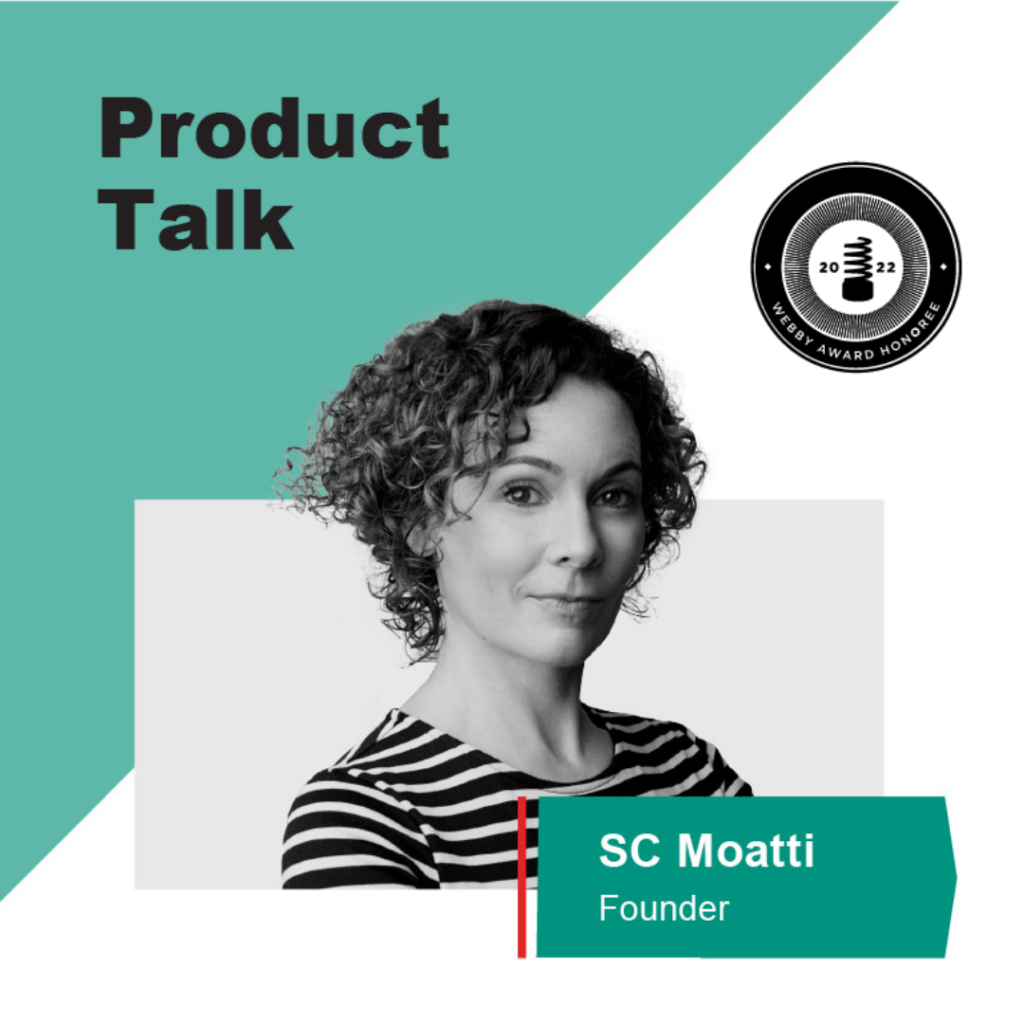A core problem for product teams is that it can be hard to get timely qualitative data from end users. PMs can access many quantitative metrics, but seeing a pattern is different from understanding why that pattern is happening.
In this podcast episode, the first in the 2022 Product Awards series, Sprig Product Lead Rachel Wang sits down with Wayfair Product Leader Nacho Andrade. Rachel shares how 2022 Product Award winner Sprig aims to reach more people through research, helping to gather the qualitative data to drive decisions that product teams can be confident about.
Subscribe to the Product Talk podcast on Spotify and Apple Podcasts, and make sure you never miss a single product conversation with leading product executives. New episodes go live every week. Episodes in the Product Awards Series drop on Fridays.

On How Research Empowers PMs
There is often an interplay between research and product teams where research is pushing for more data and understanding of goals, while product is focused on shipping products and meeting deadlines. Ideally the two teams complement each other. According to Rachel Wang, the origin of Sprig was in trying to solve the problem of making research fast, timely, and useful in making product decisions.
“How do we leverage research to make really good product decisions? Can we make sure that our product is infused with research best practices? We have a lot of templates to help teams get started. All of that was crafted by our research team. They thought really hard about the types of questions we were asking, and really making sure that the types of questions would drive to the right outcomes, the right insights that product teams can then use to make decisions. So that’s one piece of how research works.
“Another piece, I think, is just furthering, you know, how we think about research in general. So here at Sprig, we’re really thinking about research at scale. We believe that it is important to reach lots of people through research, really getting that qualitative data to drive decisions that you can be confident about. Our research team is thinking a lot about: How do we ensure that we can capture high quality data at scale, and also high quality insights?
“And then lastly, I think our research team really just helps educate everyone at the company about research. So who are researchers? What do they care about? How does research play into the product team? What are all the complexities also just of a product team, right? There’s so many different players. And so they’re really integral to all of that. So I think it’s both very tactical, as well as very strategic.”
On Iteration Without Ego
How can PMs go above and beyond? One answer is persistence through negative feedback. Rachel tells the story of a product manager on her team who presented a product spec to the team, but received feedback questioning the conviction and the data behind the idea.
She says, “I think that as a product manager, oftentimes when you hear that, that’s really hard feedback to take. What I was most impressed by was, he doubled downand talked to even more customer success managers, went to research, and came back with the most well articulated set of use cases, problems, pain points, and customers. He really blew us away with how he was able to take that feedback, really internalize it, really do the work, and then come back and really make a pitch that we then all felt really compelled by.
“And so I think it’s really about, you know, oftentimes we talk about the outcomes. What did you ship; what happened and what was the impact? But we don’t always talk about the how: how did you ship something that was so successful? And what was the work that went into it? And, to me, the above and beyond piece here was the diligence, but also the lack of ego. The willingness to go back and do it again, and iterate until it feels right and feels good. And I think it is that persistence, and that make-it-happen attitude, that really will set this person apart, both now and into the future.”
On PMs as Influencers
What makes a good product manager? That depends on the job. Some PMs need to be more technical, while others need to be more business oriented. But there are certain traits, says Rachel Wang, that are common to all good PMs.
The first of these, Rachel says, “is that you can really make structured good decisions with data that you are using multiple inputs of data. So for me, what I like to tell my team is, you know you’re at the right answer when you’ve gone through many different paths, and you’ve also arrived at that answer. So it doesn’t matter what framework you’re using, whether it’s SWOT, or Porter’s Five Forces. If you can do all of those frameworks and get to the right answer, that’s probably the right answer. And so ultimately, it’s about gaining conviction on the decisions that you’re trying to make.”
But the best theoretical decision-making in the world isn’t valuable without the ability to convince others around you that your decisions are correct. As Rachel puts it, “you need to be able to influence those around you. So whether that’s really strong communication, having hard skills like quantitative and qualitative data, design, or technical skills, you ultimately need to bring the people around you with you towards a common goal. And so I think it’s really important to develop those hard skills and soft skills in parallel so that you can really make sure that you’re moving the entire team forward.”
About the speaker
About the host
Big idea product leader specializing in the space between 0 to 1, digital transformation, and innovation.